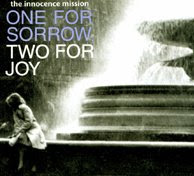Blackwell is publishing A Companion to the Philosophy of History and Historiography next month. The volume, edited by Aviezer Tucker of Queen's University, Belfast, promises to make an indispensable guide to the discipline (although it will require one to dispense with nearly $200). Here is the table of contents:1. Introduction: Aviezer Tucker (Prague)
Part I Major Fields:2. Philosophy of Historiography: Peter Kosso (Northern Arizona University)
3. Philosophy of History: Zdeněk Vašíček (Institute for Contemporary History, Prague)
4. Philosophical Issues in Natural History and Its Historiography: Carol E. Cleland (University of Colorado, Boulder)
5. Historians and Philosophy of Historiography: John Zammito (Rice University)
Part II: Basic Problems:6. Historiographic Evidence and Confirmation: Mark Day (Nottingham-Trent University) and Gregory Radick (University of Leeds)
7. Causation in Historiography: Aviezer Tucker (Prague)
8. Historiographic Counterfactuals: Elazar Weinryb (Open University of Israel)
9. Historical Necessity and Contingency: Yemima Ben-Menahem (Hebrew University)
10. Explanation in Historiography: Graham Macdonald (University of Canterbury, New Zealand) and Cynthia Macdonald (Queen's University, Belfast)
11. Historiographic Understanding: Guiseppina D'Oro (Keele University)
12. Colligation: C. Behan McCullagh (La Trobe University)
13. The Laws of History: Stephan Berry (Berlin)
14. Historiographic Objectivity: Paul Newall (British Royal Navy)
15. Realism about the Past: Murray Murphey (University of Pennsylvania)
16. Anti-realism about the Past: Fabrice Pataut (Institut de l'Histoire et de Philosophie des Sciences et des Techniques, Paris)
17. Narrative and Interpretation: F. R. Ankersmit (University of Groningen)
18. The Ontology of the Objects of Historiography: Lars Udehn (Stockholm University)
19. Origins: Common Causes in Historiographic Reasoning: Aviezer Tucker (Prague)
20. Phylogenetic Inference: Matt Haber (University of Utah)
21. Historicism: Robert D'Amico (University of Florida)
22. Ethics and the Writing of Historiography: Jonathan Gorman (Queen's University, Belfast)
23. Logical Fallacies of Historians: Paul Newall (British Royal Navy)
24. Historical Fallacies of Historians: Carlos Spoerhase (Humboldt University of Berlin) and Colin G. King (Humboldt University of Berlin)Part III: Philosophy and Sub-fields of Historiography:
25. Philosophy of History of Science: Nicholas Jardine (University of Cambridge)
26. Philosophies of Historiography and the Social Sciences: Harold Kincaid (University of Alabama, Birmingham)
27. The Philosophy of Evolutionary Theory: Michael Ruse (Florida State University)
28. The Philosophy of Geology: Rob Inkpen (University of Portsmouth)
29. Philosophy of Archaeology: Ben Jeffares (Australia National University)
30. Reductionism: Historiography and Psychology: Cynthia Macdonald (Queen's University, Belfast) and Graham Macdonald (University of Canterbury, New Zealand)
31. Historiography and Myth: Mary Lefkowitz (Wellesley College)
32. Historiography and Memory: Marie-Claire Lavabre (CNRS, France)
33. Historiographic Schools: Christopher Lloyd (University of New England)
Part IV: Classical Schools and Philosophers of Historiography and History:34. Leopold Ranke: Thomas Gil (Technical University of Berlin)
35. Scientific Historiography: Chris Lorenz (VU University of Amsterdam)
36. Darwin: John S. Wilkins (University of Queensland)
37. Logical Empiricism and Logical Positivism: Krzysztof Brzechczyn (Adam Mickiewitz University/Institute of National Remembrance, Poland)
38. Jewish and Christian Philosophy of History: Samuel Moyn (Columbia University)
39. Muslim Philosophy of History: Zaid Ahmad (Universiti Putra, Malaysia)
40. Vico: Joseph Mali (Tel Aviv University)
41. Kant and Herder: Sharon Anderson-Gold (Rensselaer Polytechnic Institute)
42. Hegel: Tom Rockmore (Duquesne University)
43. Neo-Kantianism: Charles Bambach (University of Dallas)
44. Marx: Tom Rockmore (Duquesne University)
45. Collingwood and Croce: Stein Helgeby (Melbourne)
46. Phenomenology: David Weberman (Central European University, Hungary)
47. Jan Patočka: Ivan Chvatik (Czech Academy of Science)
48. Hermeneutics: Rudolf A. Makkreel (Emory University)
49. Postmodernism: Beverley Southgate (University of Hertfordshire)
50. Philosophy of History at the End of the Cold War: Krishnan Kumar (University of Virginia)Index











 - Robert Walter Weir, 1844
- Robert Walter Weir, 1844

































